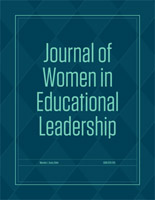Educational Administration, Department of

Journal of Women in Educational Leadership
Date of this Version
4-2007
Document Type
Article
Citation
Journal of Women in Educational Leadership, Vol. 5, No.2-April 2007. ISSN: 1541-6224. http://online.creighton.edu/edd/doctorate-leadership/faculty
Abstract
Dorothy Day challenged generations of social and political orthodoxies. She was a pacifist, a champion of the rights of women, the poor, and the oppressed at a time when it was neither politically or fashionably correct. She believed in a social revolution that did not begin with government programs, but from the bottom up. She asked everyday people to open their hearts and embrace voluntary poverty. Dorothy Day was born on November 8,1897, in New York City, where she died 83 years later. She was born into a middle class family but was introduced to poverty when her journalist father lost his position after the San Francisco earthquake and the family moved to an impoverished area of Chicago. Even when the family regained financial stability, Dorothy remained interested in the plight of the poor. She attended the University of Illinois but left before graduating to become a journalist, joining a circle of social and literary radicals. An activist for the rights of women and workers, and a pacifist, her first stint in jail in 1917 was with a group of suffragettes for demonstrating at the White House for women's voting rights. She was jailed four times from 1955 to 1959 for acts of civil disobedience, which entailed refusing to take shelter during civil defense drills in New York City. Her last visit to jail was in 1969 when, at the age of 76, she was arrested while protesting with the Universal Farm Workers in California. Although she rejected religion in her youth because she did not see organized religion helping the poor, a common law marriage and the birth of her daughter Tamar led her to embrace the Catholic faith. In 1928 she became a Roman Catholic, a decision that meshed her religious beliefs with her political ideals. When she met Peter Maurin, an immigrant from rural France, her political ideals, religious beliefs, and journalism coalesced with his vision of a nonviolent revolution and eventually led to the founding of the Catholic Worker Movement.


Comments
Copyright © 2007 ProActive Publications. Used by permission.